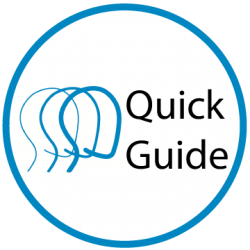Your Cart
Symptoms and Recovery in Children after Traumatic Brain Injury

While the first symptoms of brain injury in children can look very similar to those of adults, the lasting impact can be very different.
My child seems fine; should I worry?
For a long time, it was assumed that kids with TBI would recover better than adults because their brains had more “plasticity,” but recent research has shown this is not the case. Children who sustain TBI at a young age have little prior knowledge and/or fewer life experiences to draw upon to support their cognitive and behavioral recovery.

As a parent or caregiver, it’s important to understand that cognitive (learning) impairments of children may not be immediately obvious after an injury (though some are). These symptoms can become apparent as the child gets older as they face increased cognitive and social demands for new learning and more complex, socially appropriate behavior.
What symptoms should I be watching for now?
After an injury, infants and young children with brain injuries might not be able to communicate typical symptoms such as headaches, impaired vision, fatigue, sensory problems, and confusion. In cases of abusive head trauma such as shaken baby syndrome, sometimes there are no apparent external physical signs to indicate a traumatic brain injury. It’s important to pay attention to:
- Changes in eating or sleeping habits
- Changes in play (e.g., loss of interest in favorite toys/activities)
- Irritability, persistent crying, and inability to be consoled
- Lethargy
- Loss of acquired language
- Loss of new skills, such as toilet training
- Unsteady walking, loss of balance
Most brain maturation occurs from birth to 5 years, and injury in that time frame may be the most devastating time for injury to occur. But there is no way to tell how long recovery will take or how much will occur. Each brain injury is unique and recovery depends on the severity of damage, the quality of rehabilitation, family support, and the overall health of the child.
What symptoms should I be watching for later?
Despite sometimes remarkable recovery during the first year after a TBI, children will often experience a neuro-cognitive stall, or a halting or slowing in cognition, social, and motor development. Beyond the immediate symptoms, delayed issues resulting from the brain injury can create lifetime challenges for children, their families, schools, and communities. These can include:
- Difficulty processing information
- Poor judgment
- Limited reasoning skills
- Shortened attention span
- Decreased awareness of self and others
- Behavioral problems
What about returning to school?
Returning to school is a big part of recovery for children and teens, since so much of their lives tend to be focused on school. Children with a TBI may experience problems that affect school work, including difficulty learning new information, knowledge gaps cognitive deficits, or emotional and behavioral problems. Every student with a brain injury has unique needs and problems, and the school should already have or create a clear protocol for return to the classroom.
Students that continue to have symptoms or more significant challenges may be eligible for a 504 Plan or Special Education Services. For more information on helping children return to school, visit the links below.
More about Signs and Symptoms in Children
National Center on Shaken Baby Syndrome
Help Children Return to School after a TBI
Key points about recovery
- Because children’s brains are still developing, it is very important to monitor your child closely as they grow up. Common deficits after brain injury include difficulty in processing information, impaired judgment and reasoning; these are higher level thought processes and it may be years before the deficits from the injury become apparent.
- Developmental stages and challenges after TBI can be overlooked because a child who "looks okay" must "be okay." If an educational, behavioral, or social problem emerges several years after an injury, the link between observed problems and a past TBI is often overlooked.
It is important to focus on maximizing the child’s capabilities at home and in the community. Positive reinforcement helps recovery by improving self-esteem and promoting independence.
This project is supported [in part] by state contract #16-002A, administered by the Virginia Department for Aging and Rehabilitative Services (DARS)
